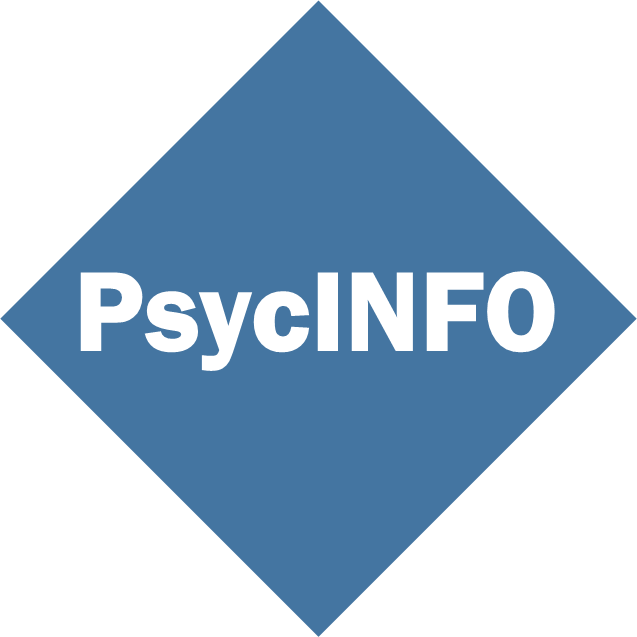Abstract
Cannabidiol (CBD) is the second-most common phytocannabinoid found in cannabis plants after tetrahydrocannabinol (THC). Unlike THC, no psychoactive effect has been demonstrated for CBD. Due to its effect on various neurotransmitter systems, it has been tried for the treatment of many physical and psychiatric diseases, considering its neuroprotective and anti-inflammatory properties. In this Editorial, the characteristics of CBD and its place in various psychiatric disorders will be briefly discussed.
Cannabidiol (CBD) is a phytocannabinoid derived from the Cannabis sativa plant, just like tetrahydrocannabinol (THC), but in contrast with the latter it shows no psychoactive effect. Unlike THC, CBD does not activate the reward system; however, it effects the opioid, serotonin, and cannabinoid receptor systems. Therefore, it is thought to be promising for the treatment of drug addiction. In particular, it acts as a non-competitive antagonist of CB1 receptor within the cannabinoid system (1). However, CBD has been shown not to be acting directly on the CB1 receptor. Most studies reported that it has no effect on the CB1 receptor at all, while some studies showed weak agonistic or weak antagonistic effects. CBD also has a low affinity for another cannabinoid receptor, the CB2 receptor (2). CBD can be converted into THC in some animal species and in laboratory settings, but this conversion does not happen in the human body (2,3).
Because of its action on various receptors, cannabidiol’s effect is being investigated in many physical or psychiatric diseases. Clinical studies for the treatment of epilepsy are ongoing and positive results have been reported. In some preclinical studies, although not mainly in epilepsy, CBD has been shown to have neuroprotective, anxiolytic, antipsychotic, analgesic, anti-inflammatory, anti-asthmatic, and antitumor features (2). The therapeutic use of CBD has also been investigated in substance use disorders. Several preclinical studies have reported that CBD may have a therapeutic effect on opioid, cocaine, and psychostimulant addiction. Some studies have also obtained data suggesting that CBD may be beneficial in cannabis and tobacco addiction in humans (4).
Substance use causes dysregulation in the mesolimbic circuit. CBD alleviates this dysregulation when administered regularly. Because of this feature, CBD was considered to be beneficial in substance use disorder. It is considered that its efficacy may depend on the dose and on whether it is administered before or in combination with the substance used (1). CBD is also thought to blunt the reward-facilitating effect of substance use through 5HT1A receptor agonism, which is effective in reducing stress and anxiety in the mesolimbic system. This suggestion is based on selective serotonin reuptake inhibitors and other antidepressants reducing substance use by alleviating mood symptoms. It has been suggested that CBD has a therapeutic effect on substance use disorder by reducing stress, anxiety, and depressive symptoms (1).
CBD has undesirable effects such as drowsiness, gastrointestinal disturbances, and fatigue, and it may also lead to drug interactions and cause an increase in liver function tests. Suicidal thoughts, which are rare in other anticonvulsant drugs, may also occur with CBD use. Therefore, its effect on suicidal ideation needs to be investigated (5).
The dependence potential of THC and CBD has been compared in mice, where tolerance to THC but not to CBD improved. In addition, there are no clinical trials reporting CBD to have the potential for addiction or abuse (2). In one study, the potential for abuse of CBD compared to cannabis was shown to be placebo-like in humans (6). Polydrug users have shown a low abuse potential for a therapeutic dose of CBD. High doses of CBD, however, have detectably greater subjective effects compared to placebo, though significantly lower than those observed with alprazolam and dronabinol (7).
Alcohol and Cannabidiol
Alcohol has been shown to cause damage to the frontal and temporal lobes and the hippocampus, in particular by inducing neuroinflammatory mediators and/or oxidative stress. These brain regions are known to be associated with problem solving, attention, information processing, learning, and memory (8). Since CBD has neuroprotective effects that prevent oxidative damage, it has been considered for the treatment of cognitive impairments caused by alcohol. These effects of CBD have been hypothesized to be mediated by the 5HT1A or CB2 receptors (8). Although based on preclinical studies, the results have been reported to support the potential therapeutic benefits of CBD for alcohol use disorder, particularly in the areas of neurodegeneration, hepatotoxicity, cognition, and recurrence risk (8). Additionally, CBD can have a therapeutic effect in alcoholic liver diseases characterized by inflammation, oxidative stress, and steatosis (9).
A study in male mice, using a strain that voluntarily drinks ethanol, showed that CBD administration reduced reinforcing properties, motivation, and ethanol relapse. Based on these findings, the authors suggested that CBD may be useful in the treatment of alcohol use disorders (10). In an animal study, co-administration of CBD and naltrexone has been found to be more effective than either CBD or naltrexone alone in reducing ethanol consumption and drinking motivation. It has been stated that these effects are at least partially mediated by 5-HT1A receptors (11). It should be noted, though, that the number of these studies is small and further clinical research is needed.
Cannabis and Cannabidiol
The effectiveness of the agonist treatment approach in cannabis addiction is limited (12). Therefore, alternatives to pure agonist treatment are also being investigated. CBD administration has been shown to reduce behavior disorders associated with cannabinoid deprivation created in mice, suggesting that it supports CBD use in cannabis dependence (13). In a study of 20 cannabis users with an average of 5.5 years of cannabis use, CBD has been found to have positive effects on attention control and psychological symptoms caused by cannabis use. In addition, the study showed that CBD had greater benefits in dependent cannabis users than in non-dependent users. (14). In a case study, CBD was added to the treatment of a cannabis addict with bipolar disorder; cannabis use was discontinued and sleep patterns improved (15). In another case report, CBD has been shown to be useful in treating cannabis withdrawal symptoms (16). However, it has been reported that CBD may have the potential to reduce euphoria associated with cannabis use, despite not directly reducing cannabis use (14). No positive effects of oral CBD on the reinforcing, physiological or positive subjective characteristics of cannabis have been detected (17).
Opioids and Cannabidiol
Most studies on the effect of CBD on opioid use disorders used animal models. In recent research, CBD has been shown to block the reward-facilitating effect of morphine (18). CBD was also found to have some efficacy in heroin studies in rats. In a study exploring the effects of CBD on heroin self-administration and drug-seeking behavior in an animal model, it has been suggested that CBD may be a potential treatment for heroin craving and relapse (19). In that study, it was shown that heroin self-administration was not altered by CBD administration, but cues-induced heroin seeking was clearly inhibited. Moreover, even if administered during active heroin intake, CBD’s ability to prevent relapse behavior was also seen in the weeks after recent exposure. Based on these findings, the authors of the study suggested that CBD may effect the course of heroin addiction even following a potential lapse after a period of deprivation (19).
Cocaine, Psychostimulants and Cannabidiol
The results regarding the effectiveness of CBD for stimulus use are controversial (1). There have been studies showing that acute CBD administration does not block the reward-facilitating effect of cocaine (18), does not reduce self-administration of cocaine, and does not reduce cue-induced cocaine use in rats: An acute CBD treatment had a minimal effect on cocaine intake and relapse in a rat model (20).
Although CBD could not reduce drug-related reinstatement, it reduced voluntary consumption of cocaine (21). Since CBD has been shown to be effective in preventing methamphetamine-induced conditional place preference (CPP) in rats even in case of stress, it has been suggested that it could be used to reduce the risk of relapse (22). Different results were also revealed in studies on the relapse of psychostimulants and cocaine. CBD is able to attenuate reconsolidation of CPP for cocaine in mice (23) and effectively reduce cue- and stress-induced reinstatement of cocaine-seeking (24). Another study suggested no effect of CBD on drug-primed reinstatement post-extinction (21). The differences between the results obtained may be depending on the dose (25). It has been shown that CBD can reduce the motivation to seek and consume methamphetamine and might thus be used as a promising pharmacotherapy for methamphetamine dependence (25). The effect described in this study was seen at a dose of 80 mg/kg CBD, but not at 40 mg/kg or 20 mg/kg. Another study reported that CBD can be useful by blunting the acute rewarding effects of cocaine through a mechanism linked to DA (26).
Tobacco and Cannabidiol
As the endocannabinoid system is thought to have a role in nicotine dependence, the effectiveness of CBD in this regard has been investigated by various studies in dependent smokers. In one of these studies, 24 smokers were divided into two groups receiving CBD (n=12) or placebo (n=12), respectively, during a one-week treatment. There was no change in the number of cigarettes smoked in the placebo group, while those who received CBD reduced the number of cigarettes smoked during treatment by approximately 40%. The results also showed some continuity at follow-up. With this preliminary data, it has been suggested that CBD is a potential treatment for nicotine addiction (27). In another study with 30 subjects, a single dose of CBD reduced the pleasantness and salience of cigarette cues compared to placebo after overnight abstinence in dependent smokers. However, CBD did not influence tobacco craving or withdrawal (28).
Psychosis and Cannabidiol
There are preclinical (29,30) and clinical studies on the antipsychotic efficacy of CBD (31). First, in a single case report, CBD has been shown to lead to improvement in a treatment-resistant schizophrenia patient (32). A four-week randomized, double-blind clinical trial was conducted in 42 schizophrenia patients, comparing amisulpride, a very effective second-generation antipsychotic, and CBD. Patients received either CBD (600-800 mg/day) or amisulpride (600-800 mg/day). Both drugs resulted in a marked improvement of both the positive and negative symptoms of psychosis. The effectiveness of cannabidiol was as good as that of amisulpride. Additionally, CBD’s side effect profile was superior to amisulpride (33). CBD did not cause prolactin increase, weight gain, or extrapyramidal symptoms that could be seen with amisulpride. Decreased psychotic symptoms associated with increased serum anandamide levels in patients receiving CBD treatment suggested that inhibition of anandamide deactivation may contribute to the antipsychotic effects of CBD (33). In an fMRI study, it has been suggested that CBD may partially normalize changes in parahippocampal, striatal, and midbrain functions that are important for the pathophysiology of psychosis, thus resulting in therapeutic effects of CBD on psychotic symptoms (34).
Anxiety and Cannabidiol
There are studies in the literature on the effect of CBD on anxiety (35). It has also been reported that although CBD has been shown to block anxiety triggered by delta 9-THC, this effect may be due to marijuana-like effects and other subjective changes caused by delta 9-THC, because no changes were detected in pulse measurements (36). The anxiolytic effect of CBD on anxiety induced by a simulated public speaking test has been shown in a clinical study. The results suggest that CBD has anxiolytic properties in volunteers who have been exposed to stress (37). In a single-photon emission computed tomography (SPECT) study, CBD has been shown to decrease subjective anxiety significantly, while placebo did not induce significant changes. Such results suggest that CBD has anxiolytic properties and that an action on limbic and paralimbic brain areas mediates such effects (38). Using the same neuroimaging method, the effectiveness of CBD and placebo was compared in 10 subjects with social anxiety disorder, and CBD was shown to reduce anxiety in this condition. This result was attributed to the effect of CBD on limbic and paralimbic brain regions (39). CBD has been found to increase the extinction of fear memories in 48 healthy volunteers, suggesting it to be a useful addition to extinction-based therapies for anxiety disorders (40). CBD has been reported to show an anxiolytic effect by reducing physiological rapid eye movement (REM) sleep and non-REM (NREM) sleep in normal rats. It has been suggested that this is an important outcome for patients with post-traumatic stress disorder, where sleep problems such as REM sleep disorder and insomnia are common (41). According to the results obtained from preclinical and clinical studies, CBD will also be a promising treatment option in panic disorder (42).
Depression and Cannabidiol
In a study in mice, it has been suggested that CBD enhances both serotonergic and glutamatergic cortical signaling by a mechanism associated with the 5-HT1A receptor, so that it can be used as an antidepressant (43). In addition, the results obtained from a genetic animal model of depression suggest that CBD may be a potential treatment for clinical depression and other states with prominent anhedonia (44).
Alzheimer Disease and Cannabidiol
Since Alzheimer’s disease (AD) is a neurological and psychiatric disease, it would be appropriate to consider the effect of CBD on this disease. Amyloid-β plaques and hyperphosphorylated taurine protein accumulate in the brains of AD patients, which are characterized by neurodegeneration and high levels of oxidative stress and inflammation. As mentioned before, CBD has neuroprotective, antioxidant, and anti-inflammatory properties and thus reduces amyloid-β production and tau hyperphosphorylation in vitro. CBD is thought to be a new treatment option for AD as it is also found to be effective in vivo in this condition. The lack of psychoactive or cognitive inhibitory properties gives CBD an advantage in this regard (45).
Seizures and Cannabidiol
CBD was approved by the FDA for two specific forms of epilepsy, Lennox-Gastaut syndrome and Dravet syndrome (46). This is the first approval for a medication derived from marijuana, and so far the CBD has not been approved for any other indication.
Conclusion
A review of the literature suggests that CBD may have a therapeutic effect in diseases such as substance use disorders, anxiety disorders, depression, and Alzheimer’s disease, the last one being a neurodegenerative disease. These effects of CBD are mediated by various receptor systems. Unfortunately, most of the studies used animal models rather than clinical samples. More clinical trials are needed for the use of CBD in humans. Nevertheless, the available data show that there will be a promising treatment option for various diseases in the future.
REFERENCES
1. Chye Y, Christensen E, Solowij N, Yucel M. The endocannabinoid system and cannabidiol’s promise for the treatment of substance use disorder. Front Psychiatry 2019; 10:63.
2. WHO (World Health Organization). Cannabidiol (CBD). 39th ECDD (Expert Committee on Drug Dependence) Agenda item 5.2. Geneva, 2017. https://www.who.int/medicines/access/controlled-substances/5.2_CBD.pdf. Accessed [October 2019]
3. Pisanti S, Malfitano AM, Ciaglia E, Lamberti A, Ranieri R, Cuomo G, Abate M, Faggiana G, Proto MC, Fiore D, Laezza C, Bifulco M. Cannabidiol: State of the art and new challenges for therapeutic applications. Pharmacol Ther 2017; 175:133-150.
4. Prud’homme M, Cata R, Jutras-Aswad D. Cannabidiol as an intervention for addictive behaviors: a systematic review of the evidence. Subst Abuse 2015; 9:33-38.
5. White CM. A review of human studies assessing cannabidiol’s (CBD) therapeutic actions and potential. J Clin Pharmacol 2019; 59:923-934.
6. Babalonis S, Haney M, Malcolm RJ, Lofwall MR, Votaw VR, Sparenborg S, Walsh SL. Oral cannabidiol does not produce a signal for abuse liability in frequent marijuana smokers. Drug Alcohol Depend 2017; 172:9-13.
7. Schoedel KA, Szeto I, Setnik B, Sellers EM, Levy-Cooperman N, Mills C, Etges T, Sommerville K. Abuse potential assessment of cannabidiol (CBD) in recreational polydrug users: a randomized, double-blind, controlled trial. Epilepsy Behav 2018; 88:162-71.
8. Turna J, Syan SK, Frey BN, Rush B, Costello MJ, Weiss M, MacKillop J. Cannabidiol as a novel candidate alcohol use disorder pharmacotherapy: a systematic review. Alcohol Clin Exp Res 2019; 43:550-563.
9. Wang Y, Mukhopadhyay P, Cao Z, Wang H, Feng D, Hasko G, Mechoulam R, Gao B, Pacher P. Cannabidiol attenuates alcohol-induced liver steatosis, metabolic dysregulation, inflammation and neutrophil-mediated injury. Sci Rep 2017; 7:12064.
10. Viudez-Martinez A, Garcia-Gutierrez MS, Navarron CM, Morales-Calero MI, Navarrete F, Torres-Suarez AI, Manzanares J. Cannabidiol reduces ethanol consumption, motivation and relapse in mice. Addict Biol 2018; 23:154-164.
11. Viudez-Martinez A, Garcia-Gutierrez MS, Fraguas-Sanchez AI, Torres-Suarez AI, Manzanares J. Effects of cannabidiol plus naltrexone on motivation and ethanol consumption. Br J Pharmacol 2018; 175:3369-3378.
12. Sabioni P, Le Foll B. Psychosocial and pharmacological interventions for the treatment of cannabis use disorder. F1000Res 2018; 7:173.
13. Garcia-Gutierrez MS, Navarrete F, Viudez-Martinez A, Gasparyan A, Caparros E, Manzanares J. Cannabidiol and Cannabis Use Disorder: In Montoya E, Weiss S (editors). Cannabis Use Disorders. Cham: Springer International Publishing, 2019, 31-42.
14. Solowij N, Broyd SJ, Beale C, Prick JA, Greenwood LM, van Hell H, Suo C, Galettis P, Pai N, Fu S, Croft RJ, Martin JH, Yucel M. Therapeutic effects of prolonged cannabidiol treatment on psychological symptoms and cognitive function in regular cannabis users: a pragmatic open-label clinical trial. Cannabis Cannabinoid Res 2018; 3:21-34.
15. Shannon S, Opila-Lehman J. Cannabidiol oil for decreasing addictive use of marijuana: a case report. Integr Med (Encinitas) 2015; 14:31-35.
16. Crippa JA, Hallak JE, Machado-de-Sousa JP, Queiroz RH, Bergamaschi M, Chagas MH, Zuardi AW. Cannabidiol for the treatment of cannabis withdrawal syndrome: a case report. J Clin Pharm Ther 2013; 38:162-164.
17. Haney M, Malcolm RJ, Babalonis S, Nuzzo PA, Cooper ZD, Bedi G, Gray KM, McRae-Clark A, Lofwall MR, Sparenborg S, Walsh SL. Oral cannabidiol does not alter the subjective, reinforcing or cardiovascular effects of smoked cannabis. Neuropsychopharmacology 2016; 41:1974-1982.
18. Katsidoni V, Anagnostou I, Panagis G. Cannabidiol inhibits the reward-facilitating effect of morphine: involvement of 5-HT1A receptors in the dorsal raphe nucleus. Addict Biol 2013; 18:286-296.
19. Ren Y, Whittard J, Higuera-Matas A, Morris C V, Hurd YL. Cannabidiol, a nonpsychotropic component of cannabis, inhibits cue-induced heroin seeking and normalizes discrete mesolimbic neuronal disturbances. J Neurosci 2009; 29:14764-14769.
20. Mahmud A, Gallant S, Sedki F, D’Cunha T, Shalev U. Effects of an acute cannabidiol treatment on cocaine self-administration and cue-induced cocaine seeking in male rats. J Psychopharmacol 2017; 31:96-104.
21. Lujan MA, Castro-Zavala A, Alegre-Zurano L, Valverde O. Repeated Cannabidiol treatment reduces cocaine intake and modulates neural proliferation and CB1R expression in the mouse hippocampus. Neuropharmacology 2018; 143:163-175.
22. Karimi-Haghighi S, Haghparast A. Cannabidiol inhibits priming-induced reinstatement of methamphetamine in REM sleep deprived rats. Prog Neuropsychopharmacol Biol Psychiatry 2018; 82:307-313.
23. de Carvalho CR, Takahashi RN. Cannabidiol disrupts the reconsolidation of contextual drug-associated memories in Wistar rats. Addict Biol 2017; 22:742-751.
24. Gonzalez-Cuevas G, Martin-Fardon R, Kerr TM, Stouffer DG, Parsons LH, Hammell DC, Banks SL, Stinchcomb AL, Weiss F. Unique treatment potential of cannabidiol for the prevention of relapse to drug use: preclinical proof of principle. Neuropsychopharmacology 2018; 43:2036-2045.
25. Hay GL, Baracz SJ, Everett NA, Roberts J, Costa PA, Arnold JC, McGregor IS, Cornish JL. Cannabidiol treatment reduces the motivation to self-administer methamphetamine and methamphetamine-primed relapse in rats. J Psychopharmacol 2018; 32:1369-1378.
26. Galaj E, Bi GH, Yang HJ, Xi ZX. Cannabidiol attenuates the rewarding effects of cocaine in rats by CB2, 5-TH1A and TRPV1 receptor mechanisms. Neuropharmacology 2019; 107740.
27. Morgan CJA, Das RK, Joye A, Curran HV, Kamboj SK. Cannabidiol reduces cigarette consumption in tobacco smokers: preliminary findings. Addict Behav 2013; 38:2433-2436.
28. Hindocha C, Freeman TP, Grabski M, Stroud JB, Crudgington H, Davies AC, Das RK, Lawn W, Morgan CJA, Curran HV. Cannabidiol reverses attentional bias to cigarette cues in a human experimental model of tobacco withdrawal. Addiction 2018; 113:1696-1705.
29. Osborne AL, Solowij N, Babic I, Lum JS, Newell KA, Huang X-F, Weston-Green K. Effect of cannabidiol on endocannabinoid, glutamatergic and GABAergic signalling markers in male offspring of a maternal immune activation (poly I:C) model relevant to schizophrenia. Prog Neuropsychopharmacol Biol Psychiatry 2019; 95:109666.
30. Jimenez Naranjo C, Osborne AL, Weston-Green K. Effect of cannabidiol on muscarinic neurotransmission in the pre-frontal cortex and hippocampus of the poly I:C rat model of schizophrenia. Prog Neuropsychopharmacol Biol Psychiatry 2019; 94:109640.
31. Rohleder C, Müller JK, Lange B, Leweke FM. Cannabidiol as a potential new type of an antipsychotic. A critical review of the evidence. Front Pharmacol 2016; 7:422.
32. Zuardi AW, Morais SL, Guimaraes FS, Mechoulam R. Antipsychotic effect of cannabidiol. J Clin Psychiatry 1995; 56:485-486.
33. Leweke FM, Piomelli D, Pahlisch F, Muhl D, Gerth CW, Hoyer C, Klosterkotter J, Hellmich M, Koethe D. Cannabidiol enhances anandamide signaling and alleviates psychotic symptoms of schizophrenia. Transl Psychiatry 2012; 2:e94.
34. Bhattacharyya S, Wilson R, Appiah-Kusi E, O’Neill A, Brammer M, Perez J, Murray R, Allen P, Bossong MG, McGuire P. Effect of cannabidiol on medial temporal, midbrain, and striatal dysfunction in people at clinical high risk of psychosis: a randomized clinical trial. JAMA Psychiatry 2018; 75:1107-1117.
35. Blessing EM, Steenkamp MM, Manzanares J, Marmar CR. Cannabidiol as a Potential Treatment for Anxiety Disorders. Neurotherapeutics 2015; 12:825-836.
36. Zuardi AW, Shirakawa I, Finkelfarb E, Karniol IG. Action of cannabidiol on the anxiety and other effects produced by delta 9-THC in normal subjects. Psychopharmacology (Berl) 1982; 76:245-250.
37. Zuardi AW, Cosme RA, Graeff FG, Guimaraes FS. Effects of ipsapirone and cannabidiol on human experimental anxiety. J Psychopharmacol 1993; 7(Suppl.1):82-88.
38. Crippa JA de S, Zuardi AW, Garrido GEJ, Wichert-Ana L, Guarnieri R, Ferrari L, Azevedo-Marques PM, Hallak JEC, McGuire PK, Busatto GF. Effects of cannabidiol (CBD) on regional cerebral blood flow. Neuropsychopharmacology 2004; 29:417-426.
39. Crippa JAS, Derenusson GN, Ferrari TB, Wichert-Ana L, Duran FLS, Martin-Santos R, Simoes MV, Bhattacharyya S, Fusar-Poli P, Atakan Z, Santos Filho A, Freitas-Ferrari MC, McGuire PK, Zuardi AW, Busatto GF, Hallak JEC. Neural basis of anxiolytic effects of cannabidiol (CBD) in generalized social anxiety disorder: a preliminary report. J Psychopharmacol 2011; 25:121-130.
40. Das RK, Kamboj SK, Ramadas M, Yogan K, Gupta V, Redman E, Curran HV, Morgan CJA. Cannabidiol enhances consolidation of explicit fear extinction in humans. Psychopharmacology (Berl) 2013; 226:781-792.
41. Hsiao YT, Yi PL, Li CL, Chang FC. Effect of cannabidiol on sleep disruption induced by the repeated combination tests consisting of open field and elevated plus-maze in rats. Neuropharmacology 2012; 62:373-384.
42. Soares V, Campos A. Evidences for the anti-panic actions of cannabidiol. Curr Neuropharmacol 2017; 15:291-299.
43. Linge R, Jimenez-Sanchez L, Campa L, Pilar-Cuellar F, Vidal R, Pazos A, Adell A, Diaz A. Cannabidiol induces rapid-acting antidepressant-like effects and enhances cortical 5-HT/glutamate neurotransmission: role of 5-HT1A receptors. Neuropharmacology 2016; 103:16-26.
44. Shoval G, Shbiro L, Hershkovitz L, Hazut N, Zalsman G, Mechoulam R, Weller A. Prohedonic effect of cannabidiol in a rat model of depression. Neuropsychobiology 2016; 73:123-129.
45. Karl T, Garner B, Cheng D. The therapeutic potential of the phytocannabinoid cannabidiol for Alzheimer’s disease. Behav Pharmacol 2017; 28 (2 and 3-Spec Issue):142-160.
46. FDA News Release. FDA approves first drug comprised of an active ingredient derived from marijuana to treat rare, severe forms of epilepsy. https://www.fda.gov/news-events/press-announcements/fda-approves-first-drug-comprised-active-ingredient-derived-marijuana-treat-rare-severe-forms. Accessed August 23, 2019.

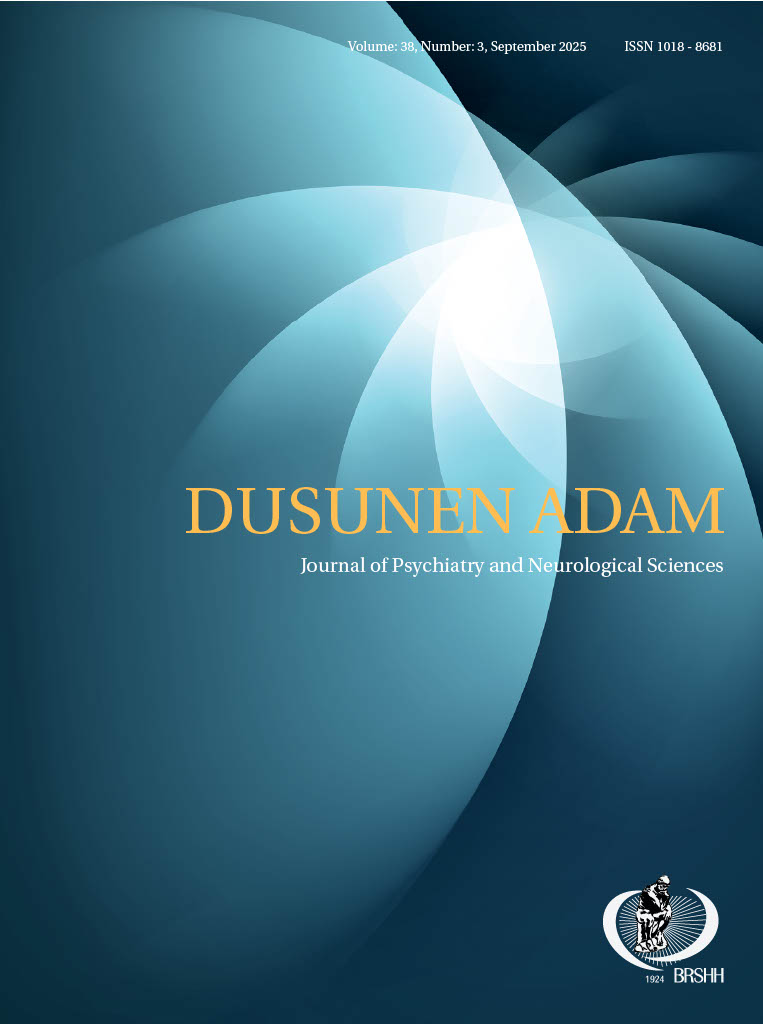
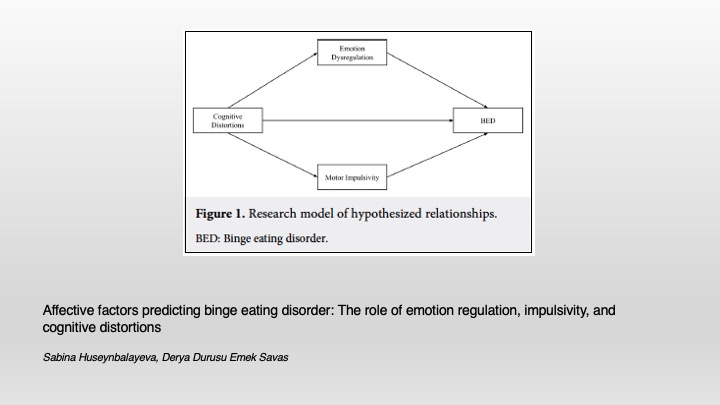
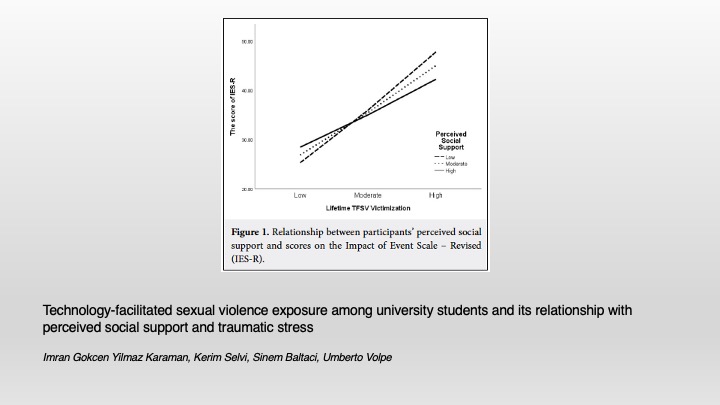
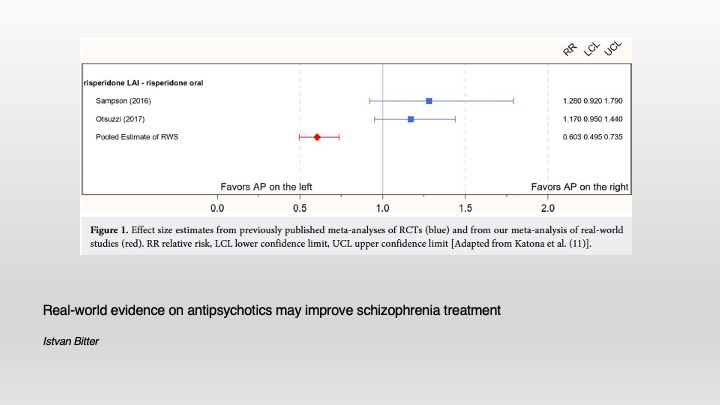

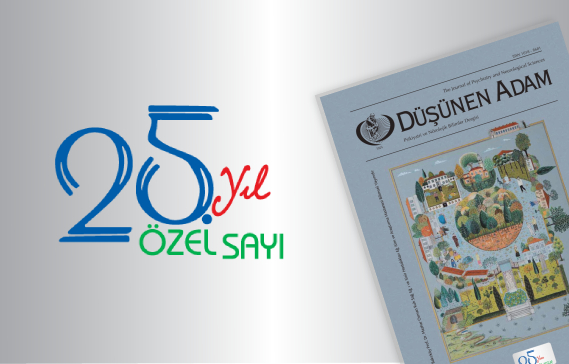
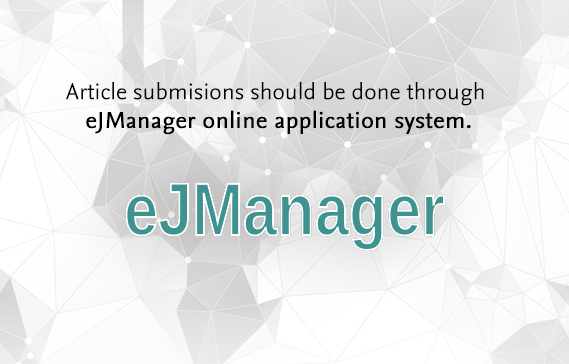

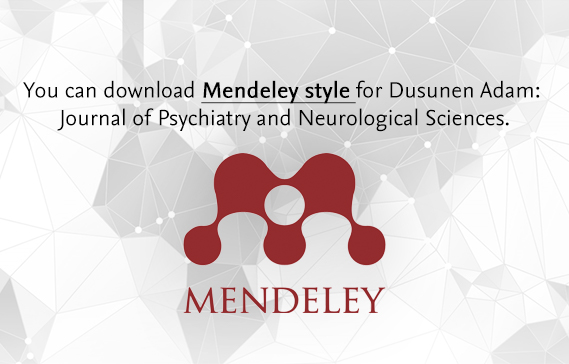
 Cuneyt Evren1
Cuneyt Evren1 




